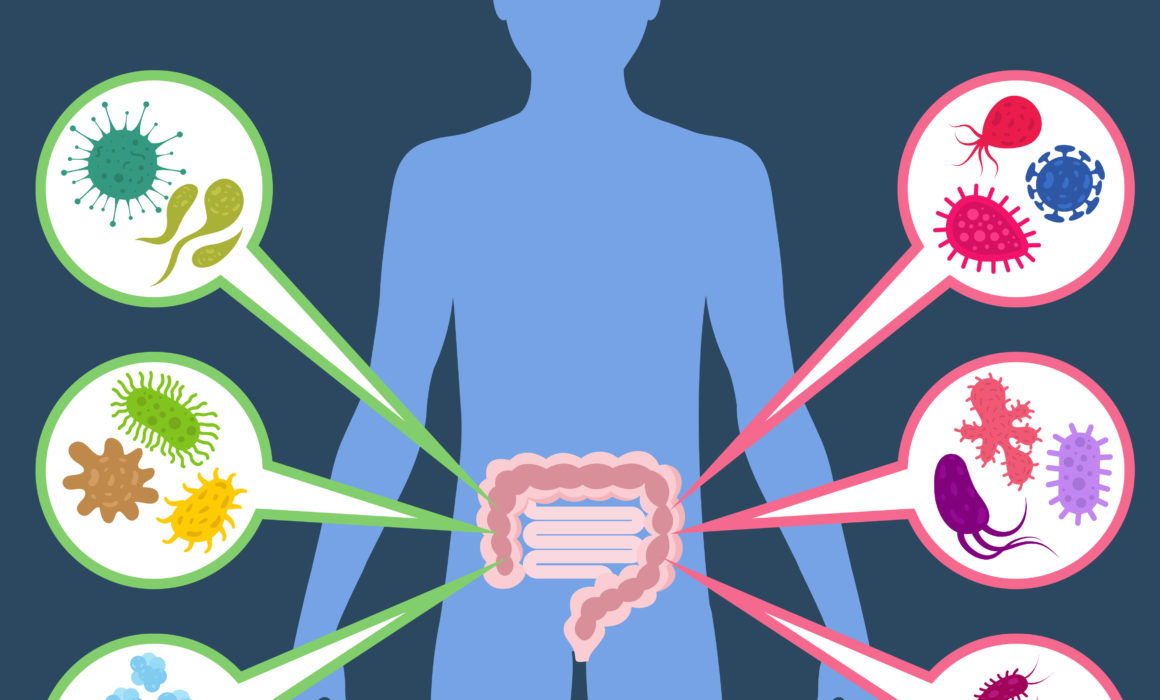How Gut Bacteria Effects Body Function and Performance
How Gut Bacteria Affects Body Function and Performance
Gut health has gained traction in the health and fitness community as more people are aware of dysfunction in their gut health. Food sensitivity awareness has skyrocketed with over 15 million Americans dealing with food allergies. Your gut is the powerhouse of your immune system. It greatly affects your mood, energy level, digestive system, and response to stress. The state of your gut health is determined by the amount of live bacteria you have to allow your gut to function properly. Let’s dig into how gut bacteria affects body function and performance.
What is gut bacteria?
Gut flora is the complex community of microorganisms that live in the digestive tracts of humans and other animals, including insects. The gut metagenome is the aggregate of all the genomes of gut microbiota.
People who take antibiotics and consume highly chlorinated water may be at risk of flora imbalance. The good news is that this can be treated by creating a breeding ground for microflora. The microflora in your body needs a stable environment to grow and flourish. Experts suggest that your ideal colon pH should be between 6.7 and 6.9. A pH of 7 is neutral—anything lower than 7 is acidic and anything above 7 is alkaline. Your colon should be slightly acidic, which decreases the growth of harmful bacteria like E. coli, Shigella, and Salmonella.
Your gut is the powerhouse of your immune system. Roughly 70% of your immune system is found within the gastrointestinal tract. This is why having a balance of flora in your gut is so important to have a healthy immune system. Experts suggest that an imbalance in flora could be the cause of some autoimmune disorders and allergies.
What does gut bacteria do?
Bacteria lines your intestines and help you digest food. During digestion, it makes vitamins that are vital for life, sends signals to the immune system, and makes small molecules that can help your brain work. Gut bacteria plays a key role in our health, from metabolizing food to preventing disease.
Researchers have discovered that people who suffer from disease have a different combination of bacteria that line their intestines compared to healthy individuals. They are still working to define the makeup of gut bacteria in a healthy person versus the gut bacteria that puts you at risk of disease.
Ongoing research reveals that people with certain diseases often have a very different mix of bacteria in their intestines compared to healthier people. Researchers are working to define the makeup of gut bacteria in a healthy person versus the gut bacteria in an unhealthy person that can point to higher risk or presence of certain diseases.
What can you do to restore and maintain a healthy gut?
In order to restore and maintain a healthy gut, you should create an acidic environment for bacteria to thrive. You can do this by consuming probiotics like lactobacillus and bifidobacterium (live bacteria and yeast that are good for your health). There are beverages, supplements, and natural food sources that you can consume as well that are a good source of healthy bacteria.
Foods and supplements that will help you restore gut health
- Fermented Foods
- Yogurt
- Natto
- Kombucha
- Sauerkraut
- Pickles
- Probiotic supplements – beverages or capsules
- Flora Protect
- Culturelle
- Kavita
- CoCo Biotic
- Suja
- Lactic Acid Yeast Wafers
How much healthy bacteria should you be consuming?
Experts recommend one to ten billion live cultures split into three doses daily. The National Yogurt Association (NYA) has established a Live & Active Cultures seal program for all yogurt manufacturers whose refrigerated products contain at least 100 million cultures per gram at the time of manufacture, and whose frozen products contain 10 million cultures per gram at the time of manufacture. This level was based on a survey of leading research scientists involved in clinical studies of the health attributes associated with live and active culture yogurt. The seal appears on yogurt packages and indicates whether this level of live and active cultures is present in the product.
Benefits of a healthy gut
Having a healthy gut has many benefits whether you are an athlete, someone looking to improve your overall health, or someone who frequently takes medication. Here are a few reasons why you should stay on top of your gut health.
- Powers digestive system
- Contributes to immune function and health
- Fights off urinary tract infections
- Good for cholesterol management
- Cleansing agent
- More efficient nutrient absorption
- Increases stress tolerance
- Offsets harmful effects of medication

